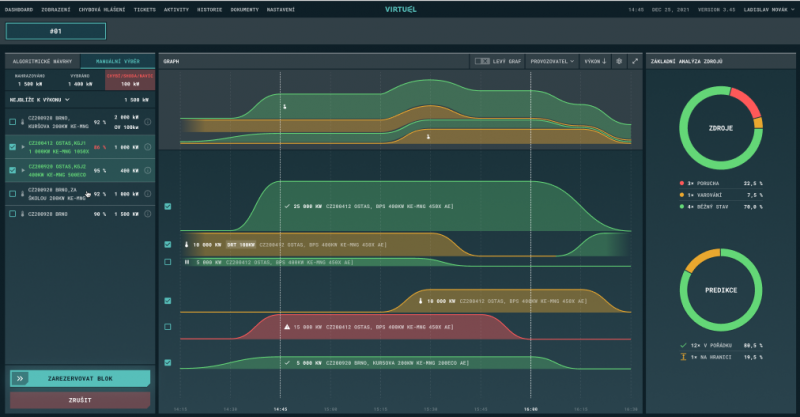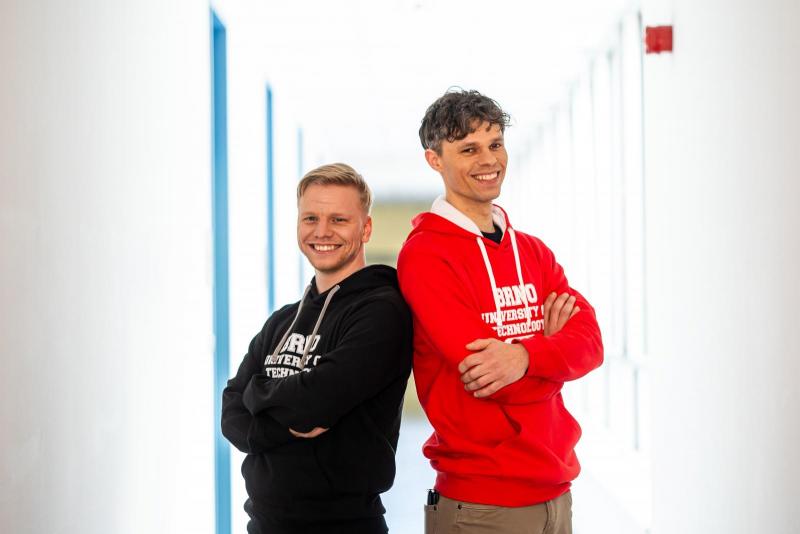Smart dispatching system for virtual power plants co-developed by experts from FME BUT
Algorithms that can predict the availability of a cogeneration unit were created by experts from the Faculty of Mechanical Engineering BUT. In cooperation with the company KARLA and the team from GENTEC CHP, within the framework of the TAČR project, they presented a "smart" dispatching system of its kind for managing virtual power plants.
At the end of 2023, the project of the Technology Agency of the Czech Republic, which was devoted to the creation of a control system for virtual power plants, was successfully completed. In simple terms, it can predict the availability of cogeneration units and thus optimize the operation of the entire virtual power plant. "A virtual power plant is actually a group of small energy sources that may be physically distant from each other, but which appear as one entity from the point of view of the energy network. I can have sources in Prague, Brno, Ostrava," describes Michal Touš from the Faculty of Mechanical Engineering at BUT, who worked on the project. These sources should then be combined. "Because it increases the possibilities for trading on the energy market due to a higher overall performance, which is more economically advantageous," adds Touš.
The energy sources in the virtual power plant can be different. From photovoltaic panels to wind power plants to cogeneration units. The project was focused on them. "They have a big advantage compared to the other sources mentioned. And that is flexibility. Photovoltaics and wind power plants are weather dependent. Therefore, they cannot be controlled at will. However, cogeneration units are essentially combustion engines. I can turn them on and off as needed. It is also possible to regulate their performance," explains Michal Touš.

According to Touš, this is what makes them an important service for the operator of the ČEPS transmission system. "ČEPS needs to maintain a balance between production and consumption of electricity. But sometimes it happens that, for example, cloud cover comes unexpectedly. The affected photovoltaic power plants will stop supplying the grid and it is necessary to get electricity somewhere quickly," he explains. Cogeneration units can be quickly started and the necessary power can be obtained from them. "That's why it's advantageous to have them in the virtual power plant. In a very simple way, it can be said that ČEPS will receive a demand for balancing power, the aggregator will look at its portfolio of cogeneration resources and know that if it combines some, it will be able to deliver the required power as a whole. If everything goes as it should, he will be paid very well for providing the power balance service," points out Michal Touš.
But if, for example, one of the units breaks down and the aggregator does not deliver the promised performance, it faces a large fine. A similar situation can occur if the unit cannot be started due to insufficient heat demand. "Cogeneration units produce electricity and heat at the same time and are often installed as a heat source. However, if there is no outlet for the heat, such a unit cannot be started. "That's why it's good to have a tool that can evaluate whether a given source will be able to supply energy at the required time," says Touš. And since there was no such thing on the market, researchers from FME BUT embarked on a joint project with the companies KARLA and GENTEC CHP.

The goal was to create a control system for virtual power plants with cogeneration units, which could, among other things, predict a malfunction, but also whether it would be possible to use the heat from the cogeneration unit. The system collects a large amount of data, which is then used by artificial intelligence. It can evaluate the probability with which the unit will be available for the power balance service at the required time. This will help the operator of the virtual power plant in deciding whether to offer the unit's output.
According to Toušl, the software that has been available on the market until now offers very basic functions such as remote control or status reporting. The focus on cogeneration units is also unique. "While photovoltaics and other renewable sources are already very well researched today, at least according to our research, no one has really looked into cogeneration units yet," he confirms. At the same time, according to him, there is a good chance that they will become more and more interesting for owners of virtual power plants in the future. "It is certainly an interesting trend for the future. And I personally expect the number of units to increase. Firstly, because the concept of community energy is now being introduced across the EU, and there will probably be an increase in energy producers for whom cogeneration units can be very advantageous. Another reason is that the higher the share of renewable sources, the higher the need to cover up their shortcomings and fluctuations in production," concludes Michal Touš. The created system for virtual power plants is called Virtuel. Among the first users will be the companies GENTEC CHP and aggregaat, which, thanks to Virtual, will provide efficient control of cogeneration units in aggregate blocks.
| Published | |
|---|---|
| Link | https://www.vut.cz/en/rad/transfer/companies/reference/f38103/d259012 |
Responsibility: Mgr. Marta Vaňková